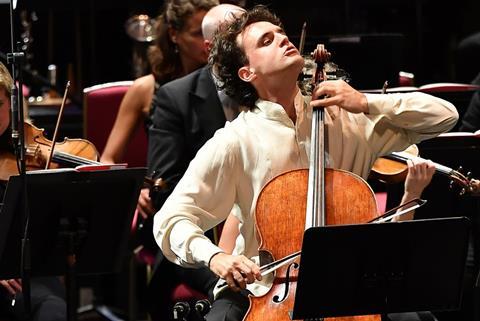For the German-born cellist, Brahms’s Cello Sonata in E minor op.38 brings back memories of childhood – and perhaps even further back than that

The following is an extract from a longer Sentimental Work article in The Strad’s October 2017 issue – to read the full article, download the issue on desktop computer or via the The Strad App, or buy the print edition
I first played Brahms’s Cello Sonata no.1 in E minor when I was nine years old. Along with Bach’s First Cello Suite, it was the first piece of adult concert repertoire I’d learnt. I performed it at my audition for the Yehudi Menuhin School aged ten, and again at my first full recital in Germany two years later, so it certainly brings back memories of my childhood. Having said that, though, it’s a very mature ‘old soul’ type of piece, and although I wasn’t a very melancholy child, I did always feel more drawn to that kind of music, as opposed to the more naive, upbeat repertoire.
When I see videos of myself playing at that age, I always seem to have my head tilted back and my eyes closed, as if I’m remembering something from a long time past – even though, at that age, I know I hadn’t had the lifetime of experience you need to draw on to convey the emotion of the sonata. It’s almost as if I’m recalling a previous lifetime in order to find that kind of expression. It’s an example of how, in both music and art, you can express things that you haven’t been through or understood yourself.
To read the full article download The Strad’s October 2017 issue on desktop computer or via the The Strad App, or buy the print edition


































No comments yet